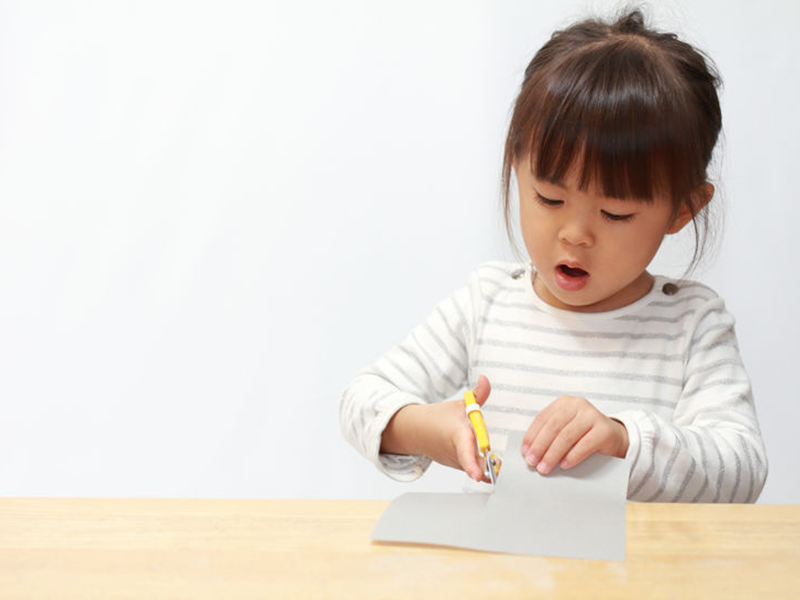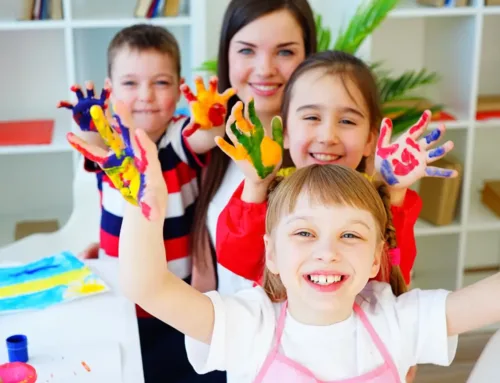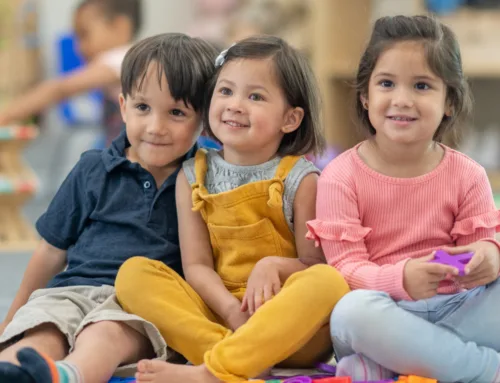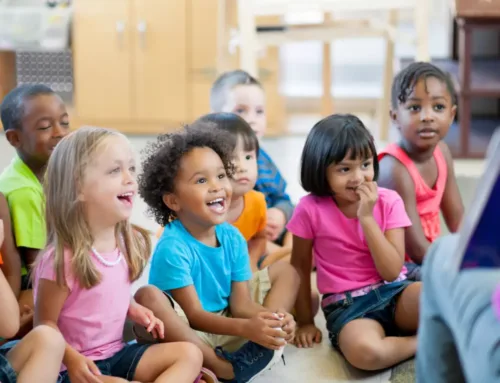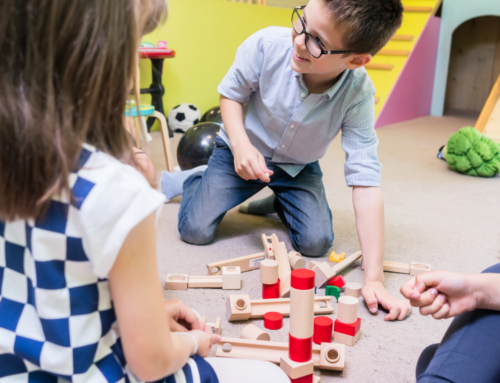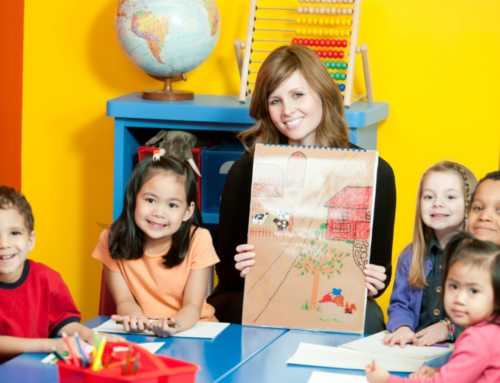Self-care: What you can expect
Most children reach developmental milestones within the normal age range, but some reach them more quickly or take a little longer. Many children reach some milestones, for example language, at an earlier age than others but develop other skills in the normal range.
Your preschooler needs a lot of sleep. By their fourth birthday your child needs 10 to 13 hours of sleep a day. They might have a nap during the day, but often 4 year olds have no daytime naps.
If you have to wake them most mornings and they are cranky or overtired during the day, your child probably needs more sleep.
A healthy diet will also help your preschooler grow and develop. It’s normal for some preschoolers to be fussy eaters or go through a fussy stage.
If you have any concerns or questions about any part of your child’s development, discuss them with your pediatrician.
Physical and skills milestones
By the age of 4, you child will probably be toilet trained. They will be able to wash their hands and face, and with some help from you, clean their teeth. They’ll be dressing themselves, although shoelaces and buttons may be difficult.
By now they will be improving their ball skills, riding a tricycle, using pencils and scissors and drawing. They will be learning to balance on one foot and hop.
Preschoolers are curious about their bodies and those of family members which can form part of playing ‘mums and dads’ or ‘doctors’. This is very common among preschoolers and in the early school years. It’s part of their general curiosity about bodies.
If you’re concerned about how your child behaves during childhood role play or how they talk about it or about body parts, talk to your doctor or another qualified health professional.
Emotional milestones
Between the ages of 3 and 4, your child starts to have a better understanding that their bodies and feelings are their own. They will also have a sense of what it feels like to be happy or sad.
This is the age when children get better at handling their emotions. Better communication skills enable them to talk about their needs and wants, so you’ll notice fewer temper tantrums.
By now they are developing self-esteem, which helps them cope with feelings of sadness or worry.
Your child will be forming friendships and may enjoy playing in small groups as they understand how to play and what’s acceptable when playing with their friends.
It’s very common for children to develop imaginary friends, which are a result of healthy imaginations. You may recognise a name or description of an imaginary friend from a book, television or toy, or the friend may be completely imagined. Your child will stop playing with their imaginary friend when they are ready.
Thinking and language milestones
By the time your child is 4, you can expect to have conversations with them that involve several hundred new words in sentences of 6 or more words.
By their fourth birthday, preschoolers usually:
- understand most of the instructions you give about familiar things and places, for example, ‘please put your cup on the table’, and are understood by other people
- recognise and name objects and parts of objects in books and in real life
- understand concepts such as comparing things (‘big’ or ‘small’, ‘thin’ or ‘thick’), and locations (‘in’, ‘under’)
- recite familiar rhymes and sing familiar songs
- ask a lot of questions about the world and how it works — ‘why’ and ‘where’ and ‘when’
- begin identifying and copying letters, numbers and colours
- start to understand time
- know and tell others their name and age
Your child’s language is developing very quickly at this time. Find out more about speech development in children.
Helping your child’s development
Your preschooler will enjoy running, tumbling and rolling, all of which use up energy and help them to deal with their emotions. Try and give your child lots of chances to run around. Encourage your child to play in sand or mud and get ‘messy’.
Your preschooler will also probably enjoy:
- drawing and painting, which help express and motivate creativity. You can help by providing pencils, crayons, paints and paper to play with
- dress-up and pretend games
- reading books with you, singing and reciting rhymes, and dancing
- cooking with you, which gives you the chance to introduce numbers and concepts such as weight and size
- building things with blocks
If you’re concerned
While different children reach milestones at different times, most children should have developed these skills and be enjoying these activities by their fourth birthday.
You should talk to your doctor or child health nurse if you have concerns about any of the milestones described or if you notice that your 4-year-old:
- isn’t using sentences of more than 3 words
- talks on and on, not taking turns in a conversation
- doesn’t seem to understand 2-part commands, such as ‘sit on your chair and pick up your book’
- doesn’t pretend during play
- seems to overreact with explosive tantrums over small things or when you leave them
- often trips when walking or running
- isn’t improving when using pencils or crayons and isn’t able to draw simple shapes
- has difficulty dressing or using the toilet
- doesn’t seem to see things or hear you
- has lost skills they once had
Vaccinations
At age 4, your child should receive vaccinations against diphtheria, tetanus, acellular pertussis (whooping cough) and polio (DTPa-IPV).
PRECIOUS MEMORIES PRESCHOOL OF SANDY HOLLOW
At Precious Memories Preschool of Sandy Hollow PreSchool of Sandy Hollow, we offer a special place for children to not only grow and develop along the way, but a place for them to CELEBRATE each and every step. If you are interested in enrolling your child in our program please fill out the form on this page or call us at 860.572.9958

